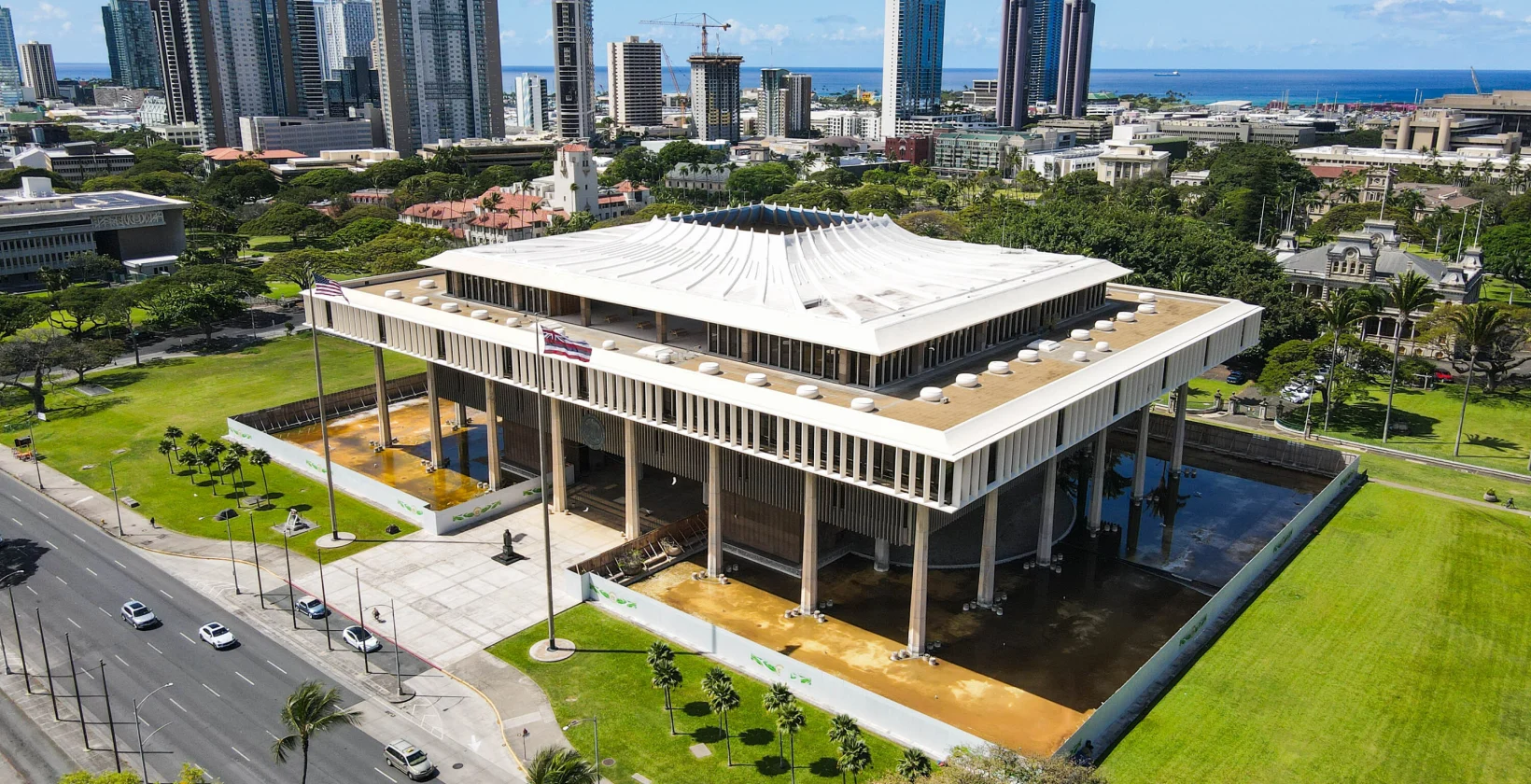In August 2021, the United Nations issued its loudest wake-up call on climate to date. The nearly 4,000-page report on climate science leaves no room for debate: human’s activities are unequivocally changing our planet’s climate. Our fossil fuel use is responsible for the dramatic unnatural disasters we’ve been witnessing worldwide—from the firestorms on the West Coast to the flooding in Europe and Asia, to the slipping away of Hawai‘i’s beaches. The report makes clear what we must do now: we must put an expiration date on burning fossil fuels.
In a time where many of us are experiencing “disaster fatigue,” the UN report did share one silver lining. While some consequences are irreversible, we can still prevent the very worst effects of climate change. But only if we act now. This is why Blue Planet is committed to slashing Hawai‘i’s emissions before this decade is out. Through the bold policies we implement here in the islands—like our 100% renewable energy law—we can catalyze change globally. This is where we find hope.
Hawai‘i state lawmakers took an inspiring step last legislative session by passing a resolution declaring a “climate emergency.” The future of Hawai‘i and the planet depends on what we do next. The upcoming legislative session offers a critical opportunity to operationalize the legislature’s climate emergency resolution into meaningful actions and policy solutions that match the scale and urgency of the challenge we face.
During the 2022 legislative session, Blue Planet is prioritizing policy solutions to accelerate our transition to a carbon-free economy. These measures seek to significantly reduce our greenhouse gas emissions at the pace and scale needed to meet the climate challenge.
Setting an economy-wide decarbonization goal: 70% emissions reduction by 2030
[HB 1800, SB 2970]
Act 234, Session Laws of Hawai‘i 2007, established a state policy framework to address Hawai‘i’s greenhouse gas emissions. In Act 234, the legislature recognized that “climate change poses a serious threat to the economic well-being, public health, natural resources, and the environment of Hawaii.” Yet nearly fifteen years later, the potential for deep decarbonization remains untapped. While our emissions have slowed, they have not dropped at the speed and scale necessary to avoid climate catastrophe. This measure would codify the urgency and commitment articulated in the legislature’s 2021 climate emergency resolution by setting a target to reduce carbon emissions economy-wide in the state by 70% over 2005 levels no later than 2030. This 70% reduction goal and deadline matches the target that Hawaiian Electric publicly set in 2021 for reducing emissions in power generation. To foster alignment and collaboration, this bill would also require the state to conduct a study of decarbonization pathways to help us get there.
Encouraging the State to lead by example through energy efficiency
[HB 1801, SB 2166, SB2963]
If we hope to achieve a carbon-negative economy by 2045 (as envisioned by Act 15 of 2018), we must embrace opportunities to reduce emissions and lower energy consumption now.
In 2020, the Hawai‘i state legislature passed HB 1846, requiring state facilities over a certain size to perform energy efficiency upgrades through performance contracting. Despite widespread and diverse stakeholder support, Governor Ige vetoed the bill citing legal concerns based on ambiguity in the language. In 2021, Representative Nicole Lowen reintroduced the legislation as HB 550 with language modifications to address the purported legal concerns and worked with Blue Planet, Hawai‘i Energy, Department of Accounting and General Services (DAGS), and other stakeholders and lawmakers on proposed changes that would address concerns about implementation. This bill was supported by a variety of community and business stakeholders, and the prospects for passage were promising. The bill progressed to Conference Committee, but it ultimately stalled there because lawmakers could not reach an agreement on a separate, unrelated bill (SB 1353, relating to the Hawai‘i State Energy Office).
This bill continues to be a top priority for Blue Planet. State buildings are one of the largest electricity users in Hawai‘i. This measure is an important piece of legislation because it amplifies existing state efforts by ensuring that state buildings over a certain size make cost-effective energy efficiency improvements. It is a keystone energy efficiency measure that can reduce the taxpayer burden of state energy bills, create new jobs in clean energy, and decrease Hawai‘i’s carbon emissions. At its core, the measure is about more than just operating efficient buildings. It is a promise that the state will lead by example and serve as a model for residents and the private sector for our clean energy transformation.
Phasing out fossil fuel vehicles
[HB 804, SB 3158]
If we are serious about achieving our clean transportation and carbon goals, we need to set clear policies on what types of vehicles are allowable in Hawai‘i. Fossil fuel-powered internal combustion engines are simply incompatible with a stable climate. We need to provide customers, auto dealers, and planners direction on what is coming so that they can plan for a smooth and equitable transition to clean transportation. The legislature set the example last session by requiring state-owned light-duty vehicles to transition to clean transportation. To meet the challenge of our climate emergency, that goal should be expanded to include all ground transportation in the state. Blue Planet will be continuing our push for Hawai‘i to set a goal for 100% renewable ground transportation and to require that all new cars sold by 2030 or earlier be zero-emission vehicles like battery-electric or hydrogen fuel cell vehicles.
